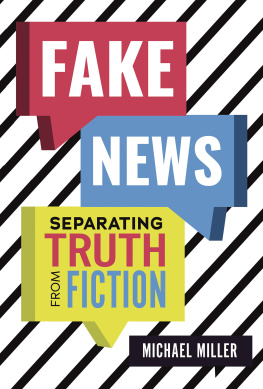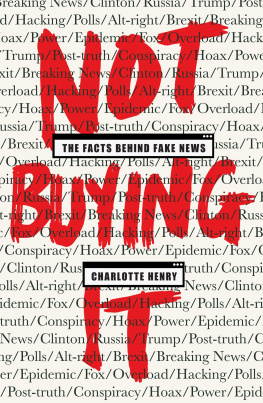THERE ARE MANY WAYS TO WRITE A STORY, so your ideas may well be good ones. The model answers provided suggest ways that you might think about the statements and issues as well as ways you could handle the reasoning problems when sharing what the newsmaker said.
CHAPTER 1: THE PERSONAL ATTACK
1. Obama is saying that his opponents, the Republicans, were unqualified to make judgments about nuclear science because they are politicians and not nuclear scientists. Really, he is saying more. He is also accusing them of basing their views and actions on what their party has agreed to do instead of each fairly considering the question. He is also saying they are thinking more about the image they could garner on TV than the things that might result from their decisions. These are attacks on the opponents and their motivations rather than a refutation of the ideas that the opponents had, so it is a Personal Attack. To contextualize this story, you could do some background investigation. It would be appropriate to look at the time line of Republican criticism: Was it in fact so early that critics could not have read and considered the proposal? You could include the dates of critical remarks and press releases so readers could judge for themselves. Its also worth finding out who those lobbyists and pundits actually are. Do they have qualifications to speak about nuclear technologies and strategies? They might, in which case, it would be useful for the opponents to listen to them. In explaining this speech to your audience or deciding to share it on social media, you could explain what the president meant and share who the people were so your audience could decide.
2. Schwarzenegger is using a cultural reference here that most people at the time would have been familiar witha Saturday Night Live skit that had characters that mimicked Schwarzeneggers accent and acted like weight lifters who insulted people who didnt work out by saying a person might be a girlie man. This kind of cultural reference makes a story interesting, and a story about the governor using that language could get a lot of clicks because it is unusual and attention-getting. However, the journalist has done the readers a disservice if they leave it there. Calling legislators girlie men is a Personal Attack, but it is hiding a bigger attack that needs to be examined because it is definitely in the public interest. Schwarzenegger is saying that legislators are basing their decisions on powerful people in society who provide campaign money or exert influence on large blocks of voters that will help keep those legislators in office. Is this true? Before you repeat Schwarzeneggers words, you need to find out. A reporter could ask exactly what special interests are being supported by which legislators. Reporters or citizens could be looking up the priorities of unions, trial lawyers, and so on and asking the legislators or their staffs their views on those issues. Finally, if you interview the legislators about the governors remarks, dont settle for comments about how government figures should have respectful discussions. Do the legislators believe they are acting for groups other than the citizens? Do they believe that what the unions want is in the interest of all citizens in their districts? Why?
CHAPTER 2: POISONING THE WELL
1. Kennedy is trying to make the listener assume that because Nixon was nominated by a particular political party, he would necessarily adopt and advocate for all of the Republican Party policies. This might be a reasonable assumptionafter all, parties use the same political convention where they nominate their candidates to develop their platforms, which are a set of values and priorities that members of the party agree they will work toward. In this case, though, Kennedy is Poisoning the Well by asking the audience to believe that anything Nixon says is just the same Republican point of view. This is an untested assumption and, probably, an unfair one as well. In a country that was less than 200 years old, 25 years is a substantial length of time, and it is likely that party priorities shifted some during that time. Note that Kennedy tries to cover for this by stating that it is most of the 25 years. There are still two assumptions here that need to be addressed in context for a story or before sharing Kennedys statement. First, does Nixon, in fact, intend to do whatever the party agrees on while in office? Has he made statements about that? Could you get a question answered or look at past behavior to see? Second, are those actions over the 25 years, in fact, the ones Republicans would support today? Voting records for Republican legislators or even previous news articles could help answer this question.
2. It is true that Cohen was a convicted felon and one of the charges to which he pled guilty was lying to Congress about a deal he was working on for the president to build an office tower in Moscow. However, reminding the committee and the watching audience for this live televised hearing of his convictions and going on to state that Cohen was invited by a friend of Trumps 2016 political opponent is an example of Poisoning the Well. Jordan is implying that because Cohen has lied in the past, he will not tell the truth now. Cohens statements, Jordan implies, should be evaluated based on Cohens character rather than their content. Jordan is Poisoning the Well, which may cause any fact Cohen shares to be rejected out of hand. As a journalist covering this hearing, you can quote Cohens statements, even if he lies, because of privilege. However, it is your job to do your best to verify things that he says and to provide context about the statements, how seriously they were taken and what it might lead to for Congress. More than that, it is useful to identify Jordans statements as attempting to discredit Cohen as a witness and to point out that members of the committee did or did not say they will investigate Cohens claims further.
CHAPTER 3: THE STRAW MAN
1. The thing that is working is Obamas health care plan. Those who said no one would sign up are the Republican opponents to the plan. In fact, the plan was not widely beloved in Congress when it passed; it was a challenge even to get all Democrats to support it. In reporting this story, facts and nuance are both important. The journalist needs to ask the speaker who they are when it comes to who said no one would sign up. Once that is identified, its useful to see if lack of citizen interest in enrolling was a real part of Republicans determining whether they would support the bill. If that isnt a part of speeches or content of floor debates, the reporter needs to make that clear in the story.
2. Clinton is stating an opinion of an unnamed opponent. Its your job to give that opponent a name, preferably by asking a follow-up question either to the source or a spokesperson. If the source cant provide one, dont print the quote.
CHAPTER 4: THE APPEAL TO HYPOCRISY
1. In this case, Kavanaugh is trying to deflect questions about his drinking onto Klobuchar to make it seem like drinking to the point of blackout is normal. Remember that the line of questions was intended to see if Kavanaugh might be capable of recalling his actions in high school at the party about which Blasey Ford made the accusation. You will notice, reading the transcript of the exchange, that Kavanaugh does not ever answer the question of whether he has ever been blackout drunk. His attempt to ask Klobuchar if she had similar issues while drinking is trying to show that his past behavior was not badmaybe everyone does it. His indirect answer to Klobuchars question seems newsworthy. In this case, because an ability to remain objective and to understand arguments is relevant to service as a Supreme Court Justice, the entire exchange also seems to be relevant. Although probably not worth the space to print the whole exchange, a summary could be useful to readers. For example, Senators tried to determine if Kavanaughs behavior with alcohol while in high school could explain the different statements by Kavanaugh and Blasey Ford. Senator Amy Klobuchar asked Kavanaugh if he had ever been drunk enough to have memories lapse. After asking the senator if she had ever done that, Kavanaugh never answered her question.






